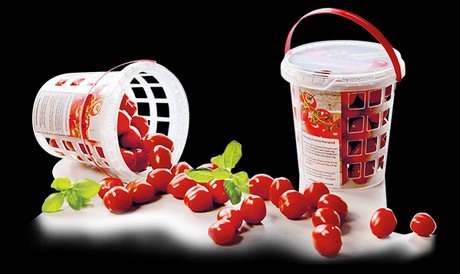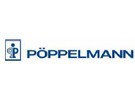Targeted material savings without loss of performance: through an extension of the FAMAC universal programme, the resource-saving Reduce+ range, Pöppelmann are actively setting an example of the responsible treatment of plastic. For more sustainability in the packaging industry.
Plastic food packaging has become an indispensable part of everyday life – it preserves the quality of products and informs consumers of their ingredients, usage and origin. Less waste during transport and storage and longer shelf lives save valuable resources. Continuously improved packaging ensures a constant supply of foodstuffs. The multitude of products offered in Germany is unique. According to the German Federal Ministry of Food and Agriculture, more than 160,000 different foods populate supermarket shelves. The amount of transported products that secure the daily supply has increased by around 90 percent in the past twenty years.
Innovative packaging solutions save resources
Although packaging is an essential prerequisite for product protection whilst simultaneously providing information and advertising, it is often the subject of public criticism. For example, when it comes to plastic, many people's thoughts still focus on waste and environmental problems. “In many applications, plastic actually saves significantly more energy and resources than were needed for its production,” reports Marco von Döllen, sales manager at Pöppelmann FAMAC. Optimised packaging almost always presents ecological advantages since the benefit of the food waste it prevents, for example, significantly outweighs the costs of packaging production. Plastic packaging also tends to be lighter than other packaging materials, reduces packaging volume and weight and lowers CO2 emissions.

Assuming responsibility
As packaging experts not just for the food industry but also for international pharma and medical companies, Pöppelmann are firmly committed to making products and processes as environmentally friendly as possible. "With our company-wide sustainability initiative Pöppelmann Blue, we want to drive forward our aim of completely closing the raw material cycle,” states Marco von Döllen. The work within the initiative is based on the model of a circular economy as promoted by the Ellen MacArthur Foundation. It describes the change from a linear economy to a closed cycle system. Reduce, reuse and recycle are crucial approaches to actively tackling and promoting sustainability, thereby contributing to the greater acceptance of plastic packaging. To achieve this, they reduce the use of materials through resource-saving article concepts and efficient production processes, develop products that can be used many times and design forward-looking concepts in order to close to material cycles.
Resource-saving and recyclable: the innovative Reduce+ range
“For us, the first effective lever for more sustainability and resource conservation is targeted material savings with more efficient services,” explains Benjamin Kampmann, technology scout in the Pöppelmann innovation team. “Of course, it’s best when food packaging protects the product whilst simultaneously uniting high material efficiency and recyclability. An example from the FAMAC product development is the Reduce+ range.”
The new range not only impresses through its appearance and performance: “Thanks to the grid structure, we use 15% less plastic for the production of a bucket. For lids, our material savings even reach 40%,” states Gerhard Brock from the FAMAC sales department. Made of robust polypropylene material, the bucket not only protects tomatoes, berries and stone fruit from contamination and unintentional damage during transport, it also offers optimal recyclability. Once used, the plastic grid bucket can easily be disposed of through household recycling. Through subsequent material recycling, the “waste product” is used to create recycled plastic, which can in turn be used to make new plastic products.
For more information:
Pöppelmann GmbH & Co. KG
T: +49 4442 982-1605 or
E: teku@poeppelmann.com
www.poeppelmann.com
